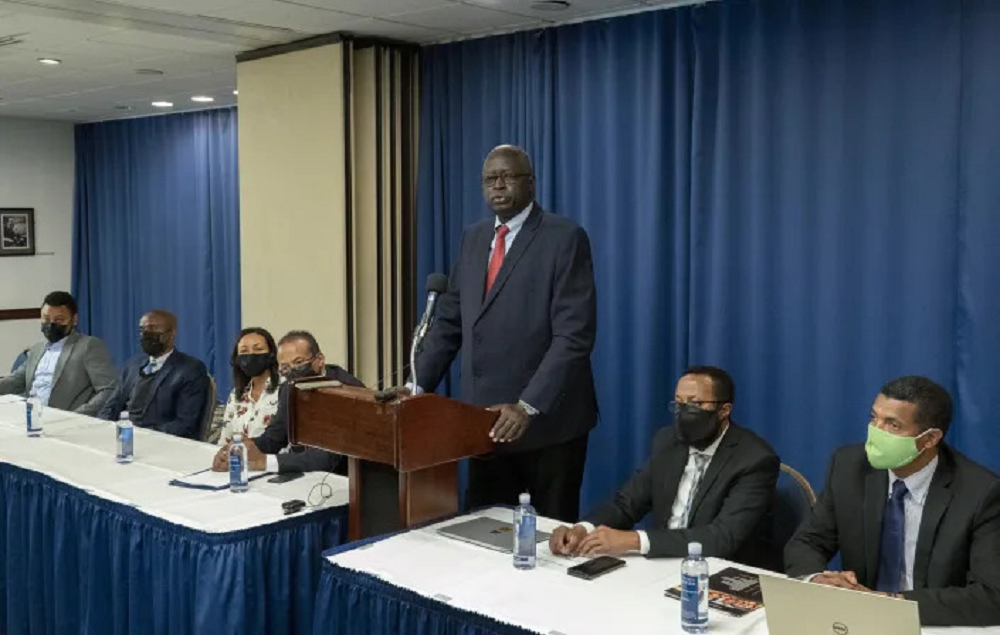November 13, 2021 (GSN) - Gambella Peoples Liberation Army (GPLA) representative Ato Okok Ojulu joined with other armed and opposition groups and signed a historic agreement on Nov 5, 2021, in Washington, DC, USA.to form Gambella and Benishangul Confederation States.
The formation of the United Front of Ethiopian Federalist and Con-federalist Forces established and joined with other armed and opposition groups around the country in an alliance against Prime Minister Abiy Ahmed to seek a political transition after a year of a devastating war, and they left the possibility open for his exit by negotiations or force.
The press statement approved by all 15 members of the U.N.'s most powerful body called on all parties to refrain "from inflammatory hate speech and incitement to violence and divisiveness." Council members further called on the parties "to put an end to hostilities and to negotiate a lasting cease-fire, and for the creation of conditions for the start of an inclusive Ethiopian national dialogue to resolve the crisis and create the foundation for peace and stability throughout the country."
The groups in the alliance include the Afar Revolutionary Democratic Unity Front, Agaw Democratic Movement, Benishangul People's Liberation Movement, Global Kimant People Right and Justice Movement/ Kimant Democratic Party, Sidama National Liberation Front, Somali State Resistance, and Tigray People's Liberation Front.
The groups’ interest in protecting Article 39 of the 1995 Ethiopia constitution, which grants “an unconditional right to self-determination, that enshrines ethnic federalism including the right to secession” to every ethnic group. Under the constitution, critics have accused regional leaders of asserting the rights of majority ethnic groups at the expense of minorities.
Comparison of Confederation and Federation
Confederation is a union of sovereign groups or states united for purposes of common action. Usually created by a treaty, confederations of states tend to be established for dealing with critical issues, such as defense, foreign relations, internal trade or currency, with the central government being required to provide support for all its members. Confederalism represents the main form of intergovernmental, which is defined as any form of interaction around states which takes place on the basis of sovereign independence or government.
Con-federalists always oppose the development of a strong federal government and prefer instead for power to remain in the hands of state and local governments. but Federalists want a stronger national unity government.
Sovereignty Held by the member states. In a Confederation, the federal government is accountable to the member states, who are the ultimate authority.
Central Authority The central authority of a confederation is usually a weak body appointed by the member states.
Powers of the Central Authority Usually will focus on joint foreign policy and defense matters, but rarely will have the power to do much more than that.
Federation
Sovereignty Held by the federal government. In a Federation, the federal government will hold the ultimate authority and the member states will be subordinate to it.
Central Authority The central authority of a federation is a federal government that governs the member states.
Powers of the Central Authority Determined by the constitution of the federation, but will generally have rights to exercise control over the diplomatic, military, economic, and legal spheres of the member states.







